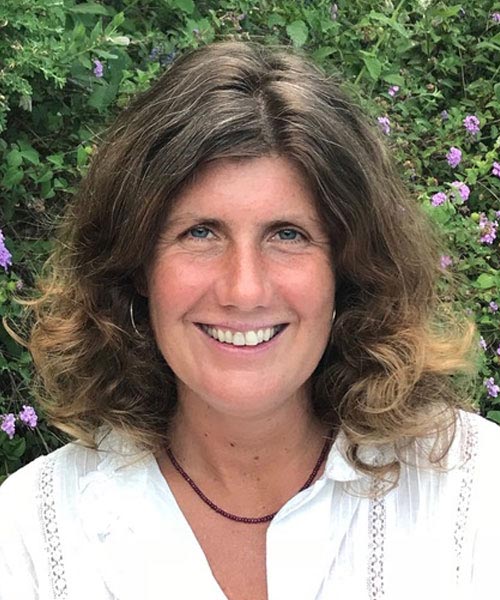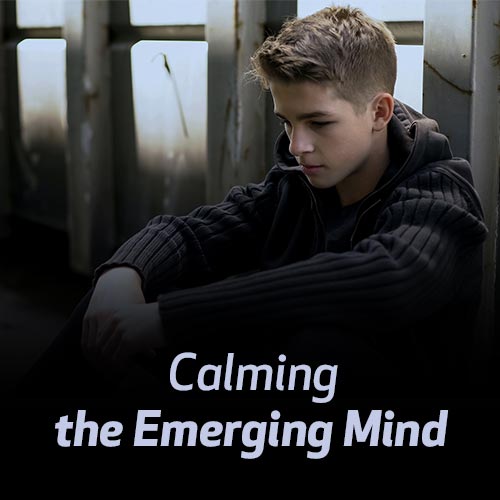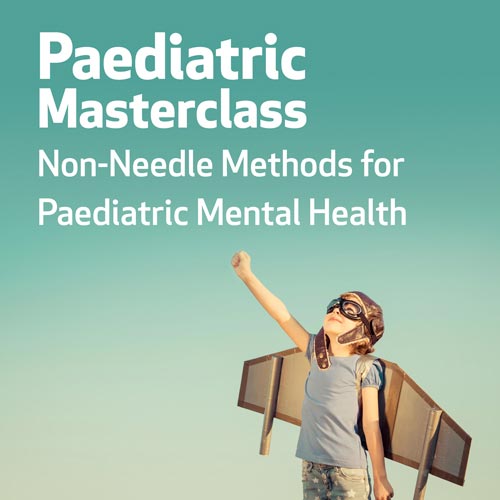Using Acupuncture to Help Babies, Children and Teenagers to Sleep
Originally published in the European Journal of Oriental Medicine.
Introduction
Rarely a day goes by at the Panda Clinic (an acupuncture centre for children) without several children coming with issues related to sleep. It may be a toddler who is still waking throughout the night, a five-year old who will not sleep in her own bed, a school-age child who regularly wakes at 5 a.m., an autistic child who is only getting four or five hours of sleep a night or a teenager who takes hours and hours to drop off.
Sleep or rather, a lack of it, can make both child and parents miserable. Parents despair of ever being able to sleep uninterrupted again and children are often grouchy and unhappy when not getting sufficient sleep. When their children are young, parents curse the early morning wake-ups only to, a few years later, curse the fact that they can’t get their teenagers out of bed before midday.
Lack of sleep drives people to do crazy things. One parent told me her toddler slept fine, as long as she drove around for two hours every evening. Another told me she had not slept in the same bed as her husband for years because her six year old needed her in his room so that he was not afraid (there may well have been another part to that story.....). The mother of a teenage girl told me she thought her relationship with her daughter had been more strained by their arguments about bedtime than anything else. The most extreme example I heard was a family who had stopped going to visit friends or on holidays because they feared their children would not sleep if they weren’t in their own beds, in their own bedrooms (equipped with top of the range black- out blinds) and having exactly the same daily routine.
However, Matthew Walker, author of the bestselling book ‘Why We Sleep’,(1) would most probably argue that parents are right to care profoundly about their child’s sleep. Beyond the obvious misery it often causes, he argues strongly that a lack of sleep profoundly affects the maturing brain, impacting on the physical, psychological and emotional development of the child. Even an hour of missed REM sleep for a baby, he writes, will make a difference (2).
In young children, it is while sleeping that the brain becomes populated with the billions of neural connections that it requires (3). Lack of sleep in children has been linked with behavioural disorders, ADHD and bullying, for example.(4) But parents don’t need to read research papers to know that there are two types of children – those who are tired and those who are not.
In the lead-up to and throughout adolescence, sleep is equally important, although for different reasons. The purpose of sleep at this time is to ‘prune’ some of the neural pathways and for the brain to develop in a more individual way, based on the personalised use of the owner. (5) It is also when the greatest development in the frontal lobes takes place.
The frontal lobes are responsible for rational thinking and decision making. REM sleep during adolescence recalibrates the brain to enable it to read facial expressions in order to determine a person’s emotions and intentions. (6) Teenagers who are necessarily waking several hours earlier than their natural rhythms would want (in order to get to school), are regularly missing out on this crucial function of sleep.
Below, I outline what I perceive as the most common issues concerning sleep that arise in babies and children of different age groups. I include a case history in each age-group which is typical of the types of problems that I see in the clinic.
Babies and sleep
A foetus will sleep nearly all the time in the womb, until the last trimester when he or she will wake for two to three hours out of each 24.(a) During the first three to four months of life, babies need on average 14 to 17 hours of sleep, which they tend to get in many short bouts with frequent waking. From five months onwards, slowly but surely most babies begin to develop some kind of sleep rhythm. By the age of one, their circadian rhythms will be more pronounced and they will do most of their sleeping at night, with naps interspersed throughout the day.
TCM perspective
From the TCM perspective, sleep disruption (beyond what is considered ‘normal’ as described above) is usually understood to be driven by the physical body and, in particular, the digestive system. The most common patterns in babies are:
- Qi Deficiency
- Cold
- Heat
- Accumulation Disorder
+ shen disturbance
Any of these patterns is accompanied by a degree of shen disturbance, which is why the pattern manifests in sleep problems. The shen of a baby is very susceptible to outside influences. Sun Simiao described this beautifully when he wrote:
Constantly beware of fright while rearing small children. Do not let them hear loud noises and, when holding them in your arms, be still and gentle. Do not let them be frightened or startled. Moreover, when there is thunder in the sky, plug the children’s ears and at the same time make some other subtle noises in order to distract them. (7)
Therefore, if a baby has received any kind of shock, experienced any intense or prolonged emotion or been around others who are, it is likely to impact on his ability to sleep.
However, sleep disruption in a baby is also often a result of a disparity between the expectations of the parents and the nature of the baby. Some xu (deficient) babies do not have enough qi to be able to sleep on their own throughout the night (see Case History 1) whilst some shi (excess) babies are so easily stimulated that sleeping in bed with their parents is too good an opportunity to play for it to be wasted on sleep.
As practitioners, as well as correcting any imbalances in the qi of the baby, part of our role may be to talk to the parent about the nature of their child and gently help them to decide on the most suitable sleeping arrangement.
Mother and baby are entirely one unit at this stage of life. A baby will ‘absorb’ the qi of the mother. Most mothers know that on a day when they are feeling out of sorts emotionally, their baby will be more tetchy and grumpy. Therefore, one of the best ways of helping a baby to sleep well is for the mother to get all the support and sleep that she can. The more balanced the shen of the mother, the better the child will sleep.
Case history 1: 2 year old girl waking through the night
I remember my initial meeting with Lucy and her mum, Amy, well, though not for reasons for which they would probably like to be remembered. I wasn’t sure which of the two I was most concerned about. Amy cried when I asked her why she had brought her daughter for treatment. She explained that she had not slept for more than two hours at a time since Lucy’s birth, two years ago. She was a single mother with very little support and was, to put it mildly, exhausted. I thought that she was most likely depressed too. Her eyes were dulled, shadowed by dark circles and her complexion was extremely pale. Lucy was also pale and had clear mucus running from her nose. She clung to her mother for dear life and began screaming whenever her mother tried to answer my questions. Thankfully, I didn’t need to ask many questions. On this occasion, the diagnosis was staring me in the face.
Other notable symptoms
Amy told me that Lucy was barely interested in solids, preferring to breastfeed, which she did frequently both night and day.
Diagnosis
Severe hyperactive Spleen qi deficiency.
Explanation
Lucy and Amy had got stuck in a vicious circle that is common amongst mothers and babies/toddlers, and especially common in single mothers who are lacking a good support network. Lucy was feeding off her mother’s qi in lieu of eating solid food. She woke up every hour or two at night because she needed a ‘fix’ of qi from her mum. Her deficient qi was failing to move Blood in the Heart, which meant her shen was not properly housed.
Treatment Principles
Tonify Spleen qi. Settle the shen.
Treatment 1:
Stomach 36 zusanli, needle with tonification technique and moxa.
Sp 3 taibai, needle with tonification technique and moxa
He 7 shenmen, needle with tonificaiton technique
Amy reported back that Lucy had slept for several three- to four- hour chunks in the week since I had seen her.
Treatment 2:
Ren 12 zhongwan, needle with tonification technique and moxa.
St 36 zusanli, needle with tonification technique and moxa.
He 7 shenmen, needle with tonification technique
Amy reported that, for the two nights after treatment, Lucy had slept for six hour chunks. After that, she had reverted to three to four hour chunks, ie. still better than when we started but far from perfect.
Treatment 3:
Bl 20 pishu, needle with tonification technique and moxa
Bl 21 weishu, needle with tonification technique and moxa
Bl 15 xinshu, needle with tonification technique.
Amy reported that, for the whole week, Lucy had only woken up once at night to feed. She had also shown more interest in solids during the day. Amy looked slightly less exhausted and I decided she was probably just about ready for some suggestions of lifestyle changes that might also help. I suggested that she avoid feeding Lucy any raw or cold foods, especially as it was winter time. I also gave her some ideas of qi and Blood-nourishing foods she could incorporate into her diet.
Treatment carried on along these lines for three more sessions. During this time, Amy told me more about her situation and, together, we looked at ways she might be able to arrange some more support. For example, I suggested she take up the kind offer of a friend to have Lucy a couple of afternoons a week. She had not felt able to do this before because she had been concerned about how Lucy would cope without her and without breast-feeding for a few hours.
Outcome
Two months after we first met, Lucy was mostly sleeping through the night, sometimes waking up once. She was eating solid food regularly and Amy had even decided to stop breast-feeding. Most importantly, Amy was starting to be able to enjoy her daughter, and to turn her attention to some of her own needs.
Reflections
One of the many joys of treating children is to see them go from floundering to flourishing. Lucy was a changed child after just a small number of treatments, no longer screaming and clinging to her mother but giggling, happily interacting with me and being mischievous in the way a two year old should be. Of course, this was, in part, because she was getting the required amount of sleep. However, just as importantly, I believed it was because she had a much happier mother. Babies and children drink in the qi of their mother as if it is the air. Therefore, Lucy was being nourished by her mother’s improved state.
I am often asked if I ever suggest that it is the mother that needs treating instead of the child. My answer, well-illustrated by this case, is that usually it doesn’t really matter whether it is the mother or child who is treated. They are a unit, and treating one will impact on the other. I believe it would have probably been equally effective if I had treated Amy.
School-age children and sleep
School-age children usually sleep in their own beds and are undisturbed through the night. They are considered to need between 11 and 12.5 hours sleep a night, and no longer need to sleep during the day.
TCM perspective
By the time a child reaches four or five years old, their digestive system has matured to some degree and physical discomfort is no longer the primary cause of sleep problems. The most common patterns causing sleep disturbance in this age group are:
- Deficiency of qi and/or Blood
- Kidney yin deficiency
- Heat in the Liver and/or Heart
All the deficiency patterns lead to qi rising up to the head and disturbing the shen of the Heart with this upward movement. The key treatment principle is to strengthen whichever substance is deficient in order to ‘root’ the qi downwards. The Full Heat in the last pattern agitates the shen and the hun.
By far the most widespread aetiology of the deficient patterns in school-age children (apart from a constitutional deficiency) is an over-scheduled lifestyle. Many children in the developed world today are in a constant state of exhaustion.(b) It has become the norm in many countries to start school at 4 years old and spend much of the rest of the time undertaking extra-curricula clubs and activities. Children are expected to achieve academically at the age of 9 what was expected of a 12 or 13 year old only a few years ago.
On top of this, the nature of childrens’ activities further encourages qi to rise to the head. Academic pursuits, reading and being on computers would ideally be balanced with physical activities, and should be stopped a couple of hours before bedtime.
Many school-age children are too ‘revved-up’ by the clockwork nature of their daily lives to easily be able to fall into restful sleep. Ironically, the more exhausted they become, the harder sleep may be to achieve.
Case history 2: 9 year old Luca waking early in the morning
Luca was brought for treatment because of his propensity to wake up early. On a good day, ‘early’ meant about 5am. On a bad day, it meant 3am. He was never able to get back to sleep having woken. He struggled to concentrate or stay awake at school and felt as if he went around in a fog. He had dark circles under his eyes and was tall and thin. He appeared extremely bright and was precociously articulate. His Dad, who brought him for treatment, confirmed that Luca did exceptionally well in school, despite feeling so tired.
Luca’s pulses were all floating and rather thin. His Water pulses were especially deficient. His tongue was normal. I noticed that he seemed somewhat uncomfortable in his body and spoke to me with the maturity and confidence of someone almost twice his age.
Diagnosis
I diagnosed Luca as having what I think of as a ‘mal-distribution’ of Kidney qi. Too much of his qi was in his head, fuelling his over-active and inquisitive mind. The shen is the most yang aspect of the spirit (compared to the hun, yi, po and zhi). It therefore has a tendency to rise up when not sufficiently rooted. As Claude Larre described, ‘The shen go up. They want to go back to heaven’. (8)
Treatment principles
Send qi downwards; root shen and the hun; tonify Kidney qi.
Treatment 1:
Ren 4 guanyuan, tonification needle technique
Ki 1 yongquan with moxa
Treatment 2:
Bl 23 shensh,u tonification needle technique
Ki 1 yongquan with moxa
Ki 3 taixi, tonification needle technique
Inserted ear seeds in: shenmen
Treatment 3:
Du 20 baihui, sedation needle technique
Ren 4 guanyuan, tonification needle technique
Ki 6 zhaohai, tonification needle technique
Luca’s sleep improved from the first treatment onwards. He told me proudly that he had not woken up before 6am since before he started treatment, and that on the odd occasion he had slept until 7.30am. He felt (and looked) less tired and found school easier. His mother told me that she thought he was more relaxed, and more often choosing to spend his time playing outside with his brother, rather than reading and other ‘head-based’ activities. Luca still comes for ‘top-ups’ usually towards the end of each term, when he is tired and his qi begins to rise up to his head more.
Reflections
Luca was a wonderful example of how a child’s personality, psychology and qi are all inter- connected and affect one another. It is often hard to separate chicken from egg: was he bright because too much of his Kidney qi was in his head, or did he have too much qi in his head and that made him intellectually precocious? The answer is probably a bit of both.
Many children with sleep problems have a pattern that is similar to Luca. It often appears in children who attend academically-demanding schools or have pressure put upon them academically from an early age. However, sometimes the pressure is internally-generated. They are Kidney deficient children who are naturally driven and competitive, and expect a lot of themselves. A key piece of lifestyle advice for these children is to encourage activities which involve them using their bodies rather than their brains.
Teenagers and sleep
Teenagers are believed to need between 9 and 12 hours of sleep a night. The idea that teenagers need more sleep than younger children is a myth. The myth perhaps comes from the fact that teenagers are notoriously hard to rouse in the morning. This is very relevant. One of the reasons that teenagers find it so hard to get the sleep they need is because their circadian rhythms change. Melatonin (which signals sleepy feelings and enables a person to fall to sleep) does not increase in a teenager’s brain until two to three hours later in the day than it does in the brain of a younger child or an adult.9 Therefore, it is genuinely difficult for many teenagers to sleep until late in the evening, and for them to get up early for school the next morning. If more parents were aware of this fact, it would take away one of the biggest causes of conflict in any family with teenagers. If educators and society at large truly took on board this information, they should feel compelled to change school start times.
TCM perspective
It is interesting to make a connection between a teenager’s inability to fall asleep in the evening and difficulty waking in the morning, with the Chinese clock. The time when teenagers are often trying (and failing) to get to sleep roughly corresponds with the time when the qi of the Triple Burner and Pericardium channels is at its highest. The Triple Burner is closely related to the ming men and there is a surge of yang energy during adolescence which fuels the many developmental changes that take place. The time when teenagers are often struggling to rouse themselves in the morning corresponds to the time when the qi of the Stomach and Spleen is highest. The digestive system of a teenager is often under huge strain, both because it has to digest the enormous quantity of food that teenagers consume, and because of the increase in intellectual activity. Therefore, a weak Stomach and Spleen may be a part of the reason teenagers may appear half asleep until the middle of the morning.
However, aspects of a teenager’s life can make falling to sleep at an appropriate time even more difficult. They are:
- Studying late into the evening, which stimulates the shen and yi
- Being on social media or computer games, which can agitate the shen and, when
- there is a feeling of being adrenalised by it, the zhi too
- Being on a screen, particularly an Ipad screen which emits blue LED light. In
- neurochemical terms, this delays the release of melatonin. (10) In TCM terms, I suspect that it agitates the hun, via the eyes. (c)
Therefore, while it is undoubtedly fruitless to expect a teenager to fall asleep at ease by 9pm and bounce out of bed at 7am, it is crucial that their evening routine and sleep environment is as conducive to good sleep as possible.
The importance of getting enough sleep (and the right kind of sleep) during adolescence is hard to over-state. Adolescents are more susceptible than at any other time of life to developing a long-term mental illness (11). A lack of sleep may be a significant tipping point.
The most common patterns of imbalance in adolescents with sleep problems are:
- Spleen qi and Heart Blood deficiency
- Liver qi stagnation turning to Heat
- Kidney yin deficiency
- Full Heat in the Liver and/or Heart
Case history 3: 14-year old Lucille not getting off to sleep until the early hours
Lucille came to the clinic because she took a long time to get to sleep in the evenings. She reported sometimes still being wide-awake at 1am or 2am, despite going to bed at around 10pm. Once asleep, she said she had vivid dreams every night and would wake for short periods throughout the night. She then struggled to get up for school in the morning.
Lucille had had a difficult transition to secondary school. She didn’t get a place at the same school as most of her friends from primary school. She said she felt depressed and lonely. The only time she felt happy was when she met up with her old friends.
Lucille’s mum told me that she thought part of the problem with her sleep was the fact that she was chatting to her friends online until late into the evening. She was inclined to let Lucille do this, as she knew how important contact with her old friends was to her, and worried about her feelings of loneliness at her new school.
Lucille appeared to me to be somewhat agitated and, on questioning, she said that she quite often felt anxious. Her pulses were all thin, but with a marked overflowing quality on both the Heart and the Liver pulse. Her Pericardium/Triple Burner pulse was the weakest. The tip and sides of her tongue were red, whilst the rest of her tongue body was pale.
Diagnosis
I diagnosed Lucille as having a Fire causative factor (CF). I thought she had some full Heat in her Heart and Liver, with underlying Blood deficiency. The reason she struggled to get to sleep was because of the Blood deficiency, and her disturbed sleep was caused by the full Heat in the Liver and Heart.
Treatment Principles
Treat Fire CF
Clear Full Heat in the Heart and Liver Calm the shen
Treatment 1:
He 8 shaofu,
Liv 2 xinjian,
M-HN-1 yintang: sedation needle technique (to clear the full Heat and calm the shen)
TB 4 sanguan,
Pc 7 daling: tonification needle technique
Treatment 2:
He 7 shenmen,
Liv 2 xinjian,
Du 24 shenting: sedation needle technique TB 5 waiguan,
Pc 6 neiguan: tonification needle technique
After the first two treatments, Lucille was still taking as long to get to sleep but, once asleep, she was sleeping more soundly and less aware of dreaming.
Treatment 3, 4 and 5:
I stopped clearing Heat at this point because the pulse was no longer overflowing and Lucille’s sleep was sounder. I continued tonifying her Fire, and also nourishing Blood with points such as Bl 17 geshu. I also used the Kidney chest points (Ki 23, 24 and 25) to calm Lucille’s agitation.
Outcome
After six or so treatments, Lucille was still not getting to sleep noticeably earlier, although she was cheerier, more open to making new friendships at her secondary school and less anxious. I suspected that the reason she was still struggling to get to sleep at a reasonable hour was her continued habit of being on social media late in to the evening. I also knew that she and her mother had fought over this topic many times and I was wary of losing rapport and being yet another person who was ‘getting on her case’.
However, I decided the subject needed to be broached. I asked Lucille what her mood was usually like when she was communicating with her friends on social media in the evening, and how it left her feeling. She said that, to be honest, her main reason for doing it was severe ‘FOMO’ (fear of missing out – if you have teenagers, this will be a familiar concept to you!). When I asked her what or who she feared missing out on, she said that it was being ‘part of the group’ but that there were really only a couple of girls who she genuinely cared about. She also said that she actually thought it made her feel agitated as it left her feeling pressured to keep up in what often felt like a competition – a competition that nobody actually admitted was a competition, about who was the coolest, doing the coolest things and looking the coolest.
We continued the conversation over several treatments, and I gently suggested to Lucille that I thought it unlikely she’d start sleeping earlier unless she had at least an hour’s gap between being online and going to bed. I suggested to her that she focus her efforts on maintaining a friendship with the two girls she genuinely cared about. I also talked to her about the nature of the Fire Element, and that with treatment I wanted to help her to know that she was liked and loveable even if she wasn’t always ‘in the thick of it’ on Instagram or Snapchat.
Over the period of a three months from the start of treatment, Lucille came to her own decision to switch off her devices at 9pm. She began regularly falling asleep around 11pm and sleeping soundly until the morning. This was perhaps still not quite enough sleep but far better than it had been.
Reflection
Another of the many wonderful things about treating young people is witnessing how treatment not only addresses the symptom for which they came for treatment, but also helps them to develop and mature in ways that neither they nor their parent may imagine. Rather than seeing Lucille’s sleep problems in isolation, they could be understood as being part of a development process which involved learning to become more secure in herself and less dependent on validation from others. Of course, it is only right that teenagers should have a 'group’ with which they identify outside of the family. Treatment in this case helped Lucille remain part of the group but in a way which involved less compromise of who she was and what was right for her.
Conclusion
Acupuncture is a supremely effective medicine for the treatment of insomnia. Babies, children and teenagers, being ‘works in progress’ respond even more readily than many adults do. It could be argued that good sleep is even more important in young people, when the body is growing at such a fast rate and the foundations of good mental health are being laid down. On top of this, a child who does not sleep well is less likely to become an
adult who sleeps well. Good (or poor) sleep becomes a habit and the younger a person develops good sleep habits, the better.
As practitioners, we should always make a pattern and/or 5 Element diagnosis of a child’s insomnia. Yet it is also important to remember that how a child sleeps is often a reflection, at least to some degree, of their life (as well as their life being a reflection of how they sleep). We need to be detectives, constantly looking for clues in the child and the members of the family that accompany them for treatment. Sometimes the clues are easy to find and a small amount of treatment and advice changes things quickly. At other times, the road to good sleep contains a few more bends and wrong turns. It is always worth persevering. As the Bard wrote, sleep is ‘the chief nourisher in life’s feast’ (12) and we are in a privileged position to be able to give a child the gift of sleep.
Other Courses By This Teacher








Childhood Food Allergies
The treatment of food allergies in children with acupuncture
with Rebecca Avern
See In StoreOverview
Food allergies are on the rise in children in the West. Acupuncture can be used to effectively lessen a child's reaction to an allergen and, in some cases, prevent it altogether. From the Chinese medicine perspective, the problem lies not with the food but with an underlying imbalance in the child's qi. Correcting this imbalance is the key to successful treatment. This course will guide you as to how to identify and treat the most common imbalances found.
Learning Objectives
- Learn how to effectively treat food allergies in children with acupuncture
- Learn how to diagnose the Chinese medicine imbalances involved in paediatric food allergies
- Understand the causes of food allergies in children
Your Teacher

Rebecca Avern
Rebecca Avern is a senior lecturer, clinical supervisor and teaching clinic director at the College of Integrated Chinese Medicine in Reading, UK. In 2012, she founded an acupuncture centre for the treatment of children in Oxford – the Panda Clinic - and her clinical work is now entirely with children. She teaches paediatrics online and at undergraduate and post-graduate level.
Categories
Tags
Overview
Stagnant qi in the head is a much overlooked yet important pattern commonly seen in children. It can cause a wide variety of physical, behavioral and emotional symptoms which may blight a child’s life.
We will look at what causes this pattern, its manifestations and, most importantly, what we can do to help. We will look at what we as acupuncturists can do in the clinic with both needles and non-needle protocols, as well as what we can teach parents to do at home.
It’s no exaggeration to say that promoting the smooth flow of Qi in the head of a child can change the course of their life for the better. You will come away knowing when this needs to be done and how to do it.
Learning Objectives
- How to successfully resolve this pattern with acupuncture.
- How to teach parents protocols they can use at home to help their child recover from this imbalance.
- How to successfully resolve this pattern with non-needle protocols.
- To recognise the signs and symptoms of stagnant qi in the head in children.
Your Teacher

Rebecca Avern
Rebecca Avern is a senior lecturer, clinical supervisor and teaching clinic director at the College of Integrated Chinese Medicine in Reading, UK. In 2012, she founded an acupuncture centre for the treatment of children in Oxford – the Panda Clinic - and her clinical work is now entirely with children. She teaches paediatrics online and at undergraduate and post-graduate level.
Categories
Tags
Supporting Teenagers Through Extraordinary Times
with Rebecca Avern
Overview
Adolescence has only been defined as a distinct psychological phase since early in the twentieth century. It was therefore obviously not discussed in historical Chinese medical texts. This talk will discuss in detail the huge transformation that occurs in the balance of the Organs, Substances and 5 Phases during adolescence, and how these manifest in the young person.
We will then take a detailed look at 2 key aetiological factors that often arise in teenage pathology: namely lack of sleep and family dynamics. We will explore these from a Chinese medical perspective, and suggest ways of minimizing the disruption they may cause.
We will then take an in depth look at each of the 5 Phases, and describe how each of them resonate with different aspects of adolescence, how the constraints of lockdown may impact them and what we can do to support their development.
Participants will leave with a better understanding of the processes underpinning adolescence, how pathology related to them may manifest and how, as parents and practitioners, we may help young people to ride this important 'gate of life' smoothy.
Learning Objectives
- Understand the developmental phase of adolescence from a 5 Phase perspective.
- Develop an understanding of sleep during adolescence from a TCM perspective and learn ways to help optimise it.
- Understand the energetic changes that underpin adolescence from the TCM perspective.
- Develop an awareness of how family dynamics impact on development throughout adolescence.
Your Teacher

Rebecca Avern
Rebecca Avern is a senior lecturer, clinical supervisor and teaching clinic director at the College of Integrated Chinese Medicine in Reading, UK. In 2012, she founded an acupuncture centre for the treatment of children in Oxford – the Panda Clinic - and her clinical work is now entirely with children. She teaches paediatrics online and at undergraduate and post-graduate level.
Categories
Tags
Overview
Teenagers require a different approach than both younger children and adults. Adolescence is a time when yin, yang and qi are going through a process of 'recalibration'. It is also a time when mental-emotional problems frequently arise.
This course looks at the changes that are going on in teenagers from a TCM perspective. It discusses the causes of disease that are most prevalent for 21st century teenagers in the west. It also looks at two of the most commonly seen pathologies that arise in teenagers and contribute to poor mental health.
Working with teenagers requires more than purely a knowledge of TCM pathologies, however. This course discusses some key principles of working with teenagers in the clinic, and how to build rapport with them.
Through case histories, it suggests an effective and sensitive approach of working with teenagers whose mental health is suffering, as well as particular treatment protocols that may be included as part of their treatment.
Learning Objectives
- Deepen your understanding of how to work with teenagers in the acupuncture clinic.
- Understand the changes related to adolescence from a TCM perspective.
- Become familiar with the two most commonly seen patterns of imbalance seen in adolescent depression.
- Learn the most commonly seen aetiologies that affect adolescent mental health.
Your Teacher

Rebecca Avern
Rebecca Avern is a senior lecturer, clinical supervisor and teaching clinic director at the College of Integrated Chinese Medicine in Reading, UK. In 2012, she founded an acupuncture centre for the treatment of children in Oxford – the Panda Clinic - and her clinical work is now entirely with children. She teaches paediatrics online and at undergraduate and post-graduate level.

